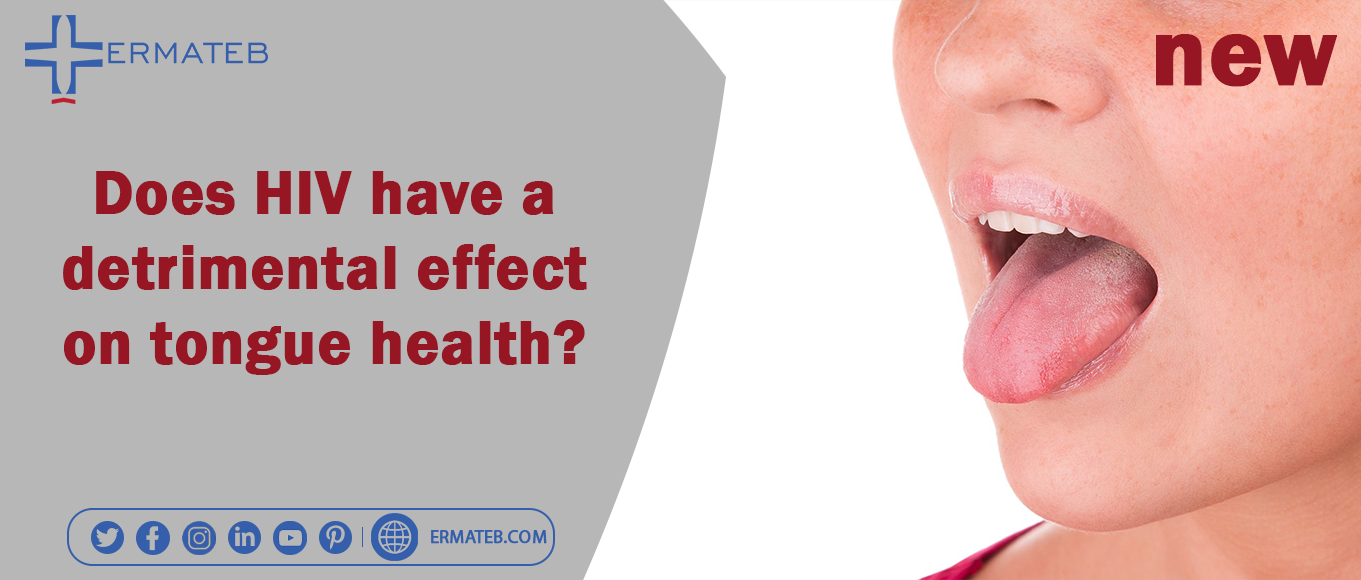
HIV is a viral infection that attacks the body's immune system and causes a variety of symptoms. The virus can affect any part of the body, including the skin and the nervous, respiratory, and digestive systems. It can also make a person more likely to develop oral health problems.
The National Skull and Dental Research Institute says people with HIV are at particular risk for oral health problems. There is evidence that around 30 to 80 percent of people infected with HIV have oral complications associated with it.
Symptoms of HIV vary depending on the stage of the disease. There are three stages to a real HIV source:
Oral symptoms such as mouth ulcers often occur in the acute phase. Therefore, they can be an early sign of HIV. Oral symptoms can also be important in monitoring the progression from a valid source of HIV to AIDS.
Oral HIV symptoms affect the tongue in different ways, each of which may require different treatments.
In this article, we look at the main symptoms of HIV that can affect the tongue and possible treatment options, we talk about how to reduce the risk of oral complications, and we explain why kissing does not transmit the virus.
How can HIV affect tongue?
HIV can indirectly affect the tongue by causing various oral health problems such as:
Oral candidiasis or thrush is a fungal infection that occurs everywhere May appear in the mouth as irregular spots that can be yellow, white, or red and cause a burning sensation. People with thrush may experience changes in taste and be more sensitive to spices.
If the infection is mild, your doctor may prescribe antifungal medicines or mouthwash. If the infection is severe, antifungal pills may be recommended.
Hairy Leukoplakia
Hairy Leukoplakia causes a thick, white, hair-like piece on the tongue. While it isn't usually painful, growing it can be uncomfortable. Hairy leukoplakia patches can look like canker sores. However, it is not possible to move the hairy leukoplakia patches while the person can remove the pieces left by the yeast infection.
If the symptoms of hairy leukoplakia are mild, treatment is not always necessary. If symptoms worsen, your doctor may prescribe a pill to help relieve symptoms.
Oral Herpes
People living with HIV are more likely than others to develop oral herpes because the virus weakens the immune system. Oral herpes infections cause red sores and blisters in and around the mouth. Tingling or burning sensation.
In contrast to candidiasis and hairy leukoplakia, oral herpes is contagious and can be caused by mouth-to-mouth contact, e.g. B. by kissing, transmitted.
There is currently no cure for herpes, but your doctor can prescribe a reliable source of antiviral medication to help reduce the frequency and severity of oral symptoms.
Oral hyperpigmentation
Oral hyperpigmentation causes dark lesions in the mouth as changes in hormone levels lead to an accumulation of excess pigment in the tissues. These lesions can be blue, purple, brown, gray, or black.
The effects of oral hyperpigmentation are cosmetic and treatment is unlikely to be unnecessary.
Oral warts
Oral warts are small bumps in the mouth. They can be pink, white, or gray and are sometimes spread through kissing.
Treatment depends on where they're growing. Doctors can prescribe creams to treat warts on the lips, but those that grow in the mouth will require cryotherapy or cryosurgery to remove them.
Prevention
There are several steps that people can take to minimize their risk of contracting HIV. Authorized Source of the Centers for Disease Control and Prevention (CDC) Please refer to these:
According to the American Dental Association, a person with HIV can prevent oral complications by using the following methods:
In addition to the oral complications listed above, a person with HIV may experience chronic dry mouth. Problems like infection and tooth decay. A person can reduce dry mouth by:

